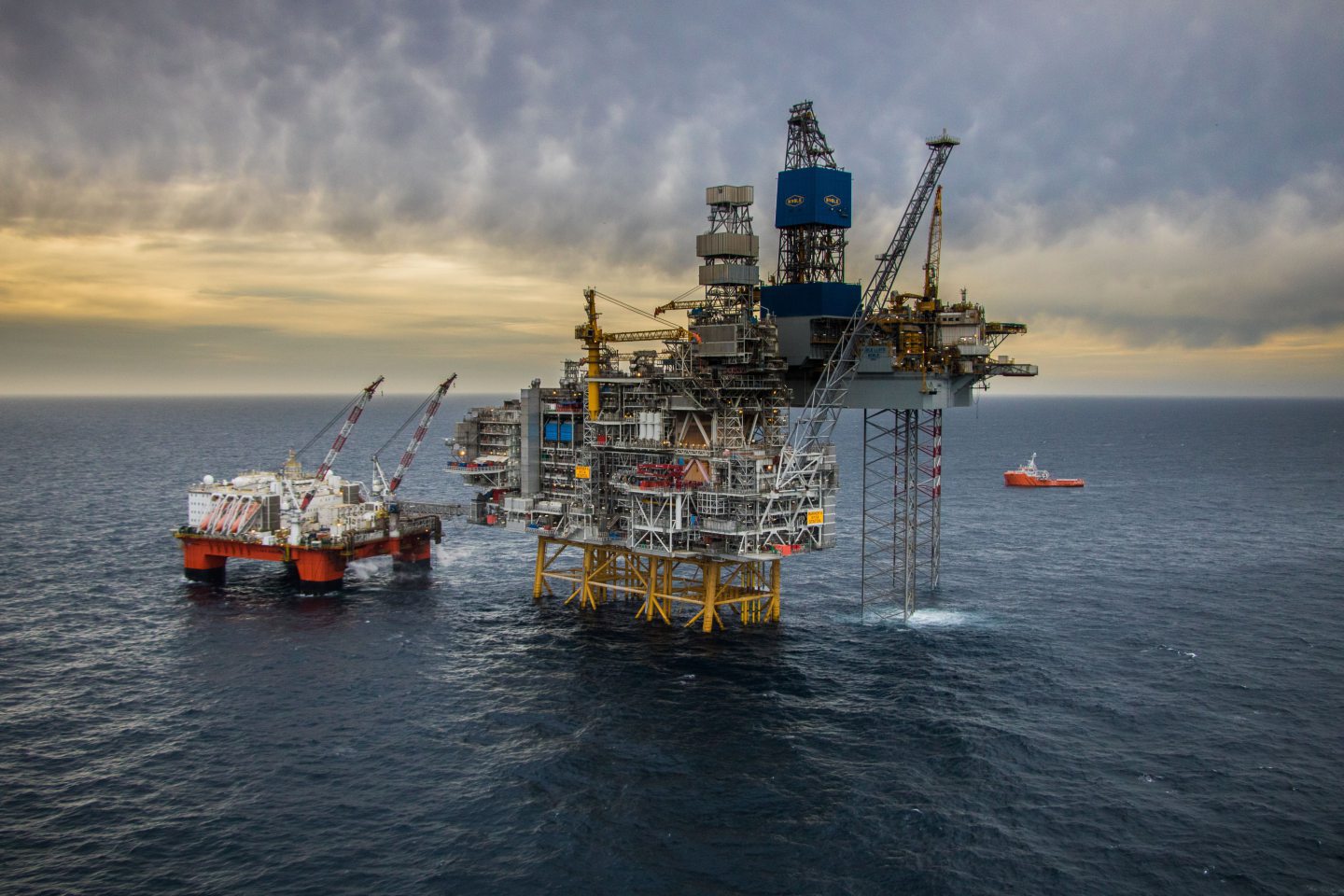
The UK oil and gas regulator has issued 24 new North Sea exploration licences as part of its latest Licensing Round, with oil majors Shell, BP and TotalEnergies among the winners.
Announced on Wednesday by the North Sea Transition Authority (NSTA), the permits form the next tranche of awards as part of the 33rd Licensing Round, and follow the 27 licences issued in October 2023.
A total of 17 companies including stalwarts such as Shell (LON:SHEL), Equinor (OSE:EQNR), BP (LON:BP) and TotalEnergies (XPAR:TTE) have been offered licences, spanning some 74 blocks and part-blocks.
All blocks offered in this tranche lie in the Central North Sea, Northern North Sea, and West of Shetland areas.
The bulk of awards contain firm work commitments to desktop studies and seismic, almost all of which are on a “drill or drop” basis.
Launched in October 2022, 931 blocks and part-blocks were made available in the 33rd Round. A total of 115 applications were made by some 76 companies during the process, which closed to applications just over a year ago.
A third tranche is set to follow “in the coming months”, NSTA said.
The regulator intends to offer the remaining blocks, the majority of which lie in the Southern North Sea and East Irish Sea, when environmental evaluations including Habitat Regulation Assessment assessments have been finalised by OPRED.
‘Common sense’ to maximise UK resources
Commenting on the result an NSTA spokesperson said: “This latest batch brings total offers so far to 51, with more to come once the appropriate environmental checks are complete.
“These licences have the potential to make a significant contribution to the UK in energy production and economic benefits, and the NSTA will work alongside the licensees to help bring them into production as quickly as possible.”
There are currently 284 offshore fields in production in the UK North Sea and an estimated 5.25 billion barrels of oil equivalent in total projected output until 2050.
Oil and gas currently contribute around three-quarters of the UK’s primary energy needs.
Minister for Energy Security and Net Zero Graham Stuart said: “We will continue to need oil and gas over the coming decades, so it is common sense to make the most of our own resources – with domestically produced gas almost four times cleaner than importing liquefied natural gas from abroad.
“These new licences will strengthen our energy security now and into the future, while also helping boost our economy, by backing an industry that supports 200,000 jobs and is worth £16 billion each year.”
NSTA analysis show that the average time between licensing and first production is now close to five years, suggesting that licences awarded thi syear could be producing before the end of the decade.
However such results are far from guaranteed; over half the licences from the 32nd Round in 2020 were relinquished by December 2023, despite many firms seeking to hold onto their acreage.
Licences needed to stem decline
As with the first batch of licences, sector representatives welcomed the awards. The CEO of trade body Offshore Energies UK (OEUK), David Whitehouse, said new exploration would help support an “orderly transition”.
“In this general election year, we face a choice: We can build a homegrown energy transition by backing our people, our offshore firms and our world class supply chain, or we can import even more energy and fail to grow our new wind, hydrogen and carbon capture industries. Policy decisions made today will be felt for generations to come.
“Our energy security, economic growth, and hundreds of thousands of jobs in almost every parliamentary constituency up and down the UK are at stake.
‘We all recognise that our energy mix must change and our sector is ramping up renewables and accelerating the drive to net zero. But this journey will take time.
“Meanwhile our North Sea basin is naturally declining. We have over 280 oil and gas fields but by the end of the decade 180 of them will have stopped producing. We need the churn of licences for an orderly transition that supports jobs and communities across the country and meets our energy needs.”
OEUK said it intends to publish an “industry manifesto” on how a homegrown transformation can be achieved later this month.
‘Drilling frenzy’ won’t help bills
However continued North Sea licensing has been condemned by climate groups and Scotland’s First Minister.
Humza Yousaf said earlier this month that Westminster “haven’t listened” to requests to strengthen climate checks on new drilling, a move he said was “disappointing.”
“From the UK Government’s announcement of wanting to introduce 100 new oil and gas licences that they made last year, that, to me, is a demonstration that they’re not really serious about tackling the climate crisis.”
Meanwhile, Scotland’s Energy Secretary Neil Gray said: “The Scottish Government recognises the important, and ongoing, role that North Sea oil and gas plays in our energy system.
“However, it is a declining resource and must be managed in a manner that is consistent with responding to the global climate emergency.
“Our focus is on Scotland’s energy security needs, reducing emissions in line with our climate commitments and delivering affordable energy supplies whilst ensuring a just transition for our oil and gas workforce. In contrast, the UK Government, which has responsibility for offshore oil and gas licensing, has shown a total lack of focus on delivering a just transition for the sector.
“We have consistently called for the UK Government’s Climate Compatibility Checkpoint to be strengthened. Without transparent and robust tests, we do not have a clear evidence base to assess whether new oil and gas licences should be issued on a case-by-case basis.
“The UK Government should focus on its responsibilities and work with the Scottish Government to unlock Scotland’s enormous renewables potential.”
Commenting on Wednesday’s announcement, Philip Evans, campaigner at Greenpeace UK also said: “The government still has their fingers in their ears. The government knows that the fossil fuel industry is driving the climate crisis, but instead of cracking down on oil and gas giants like Shell, they’re greenlighting a new drilling frenzy in the North Sea.
“We all know this will do nothing to lower bills, but will cause further climate chaos around the world.
Tessa Khan, the executive director of campaign group Uplift added: “This government is selling us a pipedream. These new licences will do vanishingly little for the UK’s energy security and nothing to lower energy bills.
“The fact is the UK has burned most of its gas, and most of what’s left in the North Sea is oil, most of which we export.
“In the last 13 years the government has issued hundreds of new licences, which have produced a grand total of 16 days worth of extra gas. And in the past decade the number of jobs supported by the oil and gas industry has more than halved.
“Looking forward, between now and 2050, new licences are expected to provide in total just 103 days of gas – that’s the equivalent of just 4 days a year of current UK gas demand.”
She instead called for a government with “a coherent transition plan” that would not leave workers behind “a laser-like focus” on reducing household energy bills.
Recommended for you

 © Supplied by North Sea Transition
© Supplied by North Sea Transition © Jamie Baikie / Equinor
© Jamie Baikie / Equinor